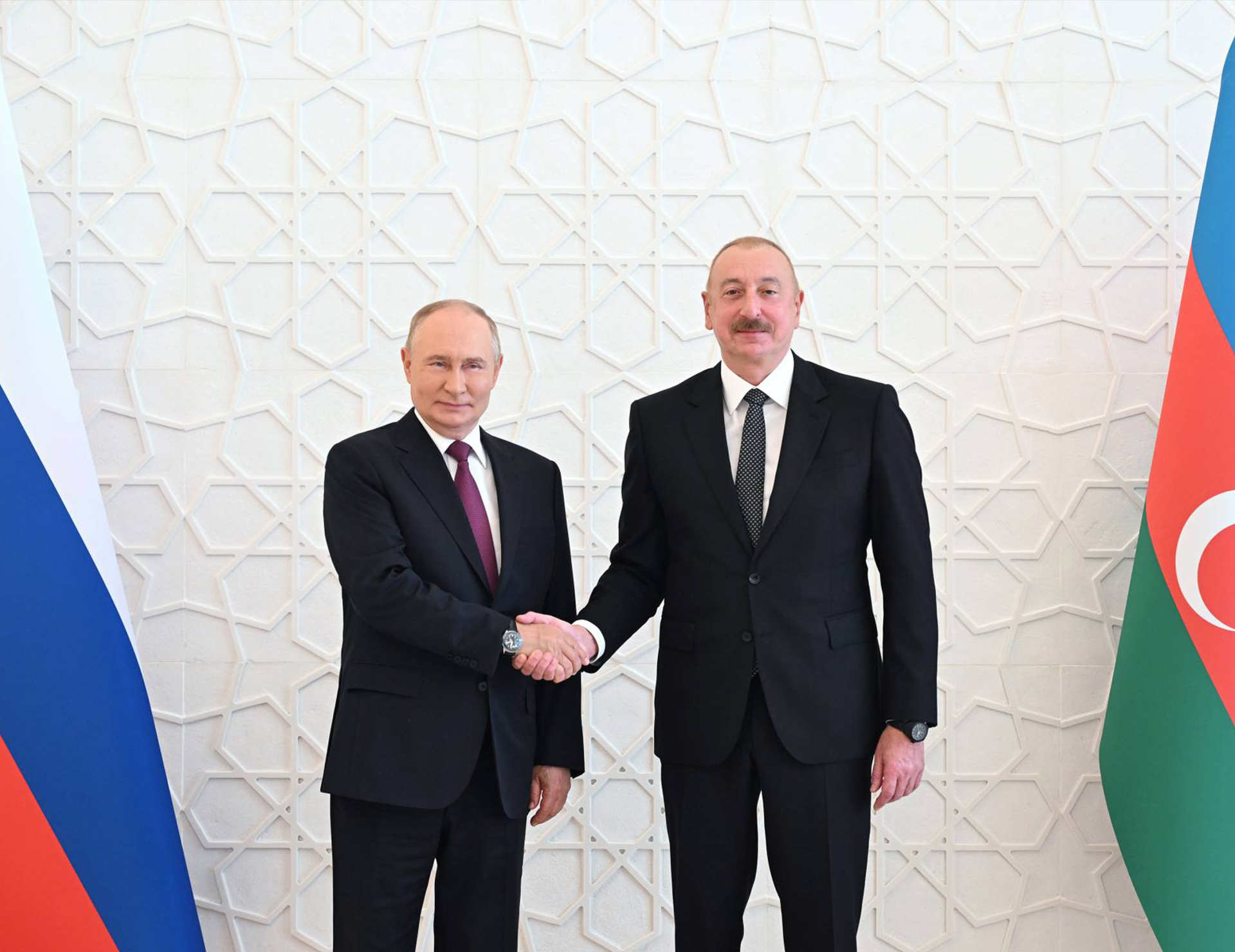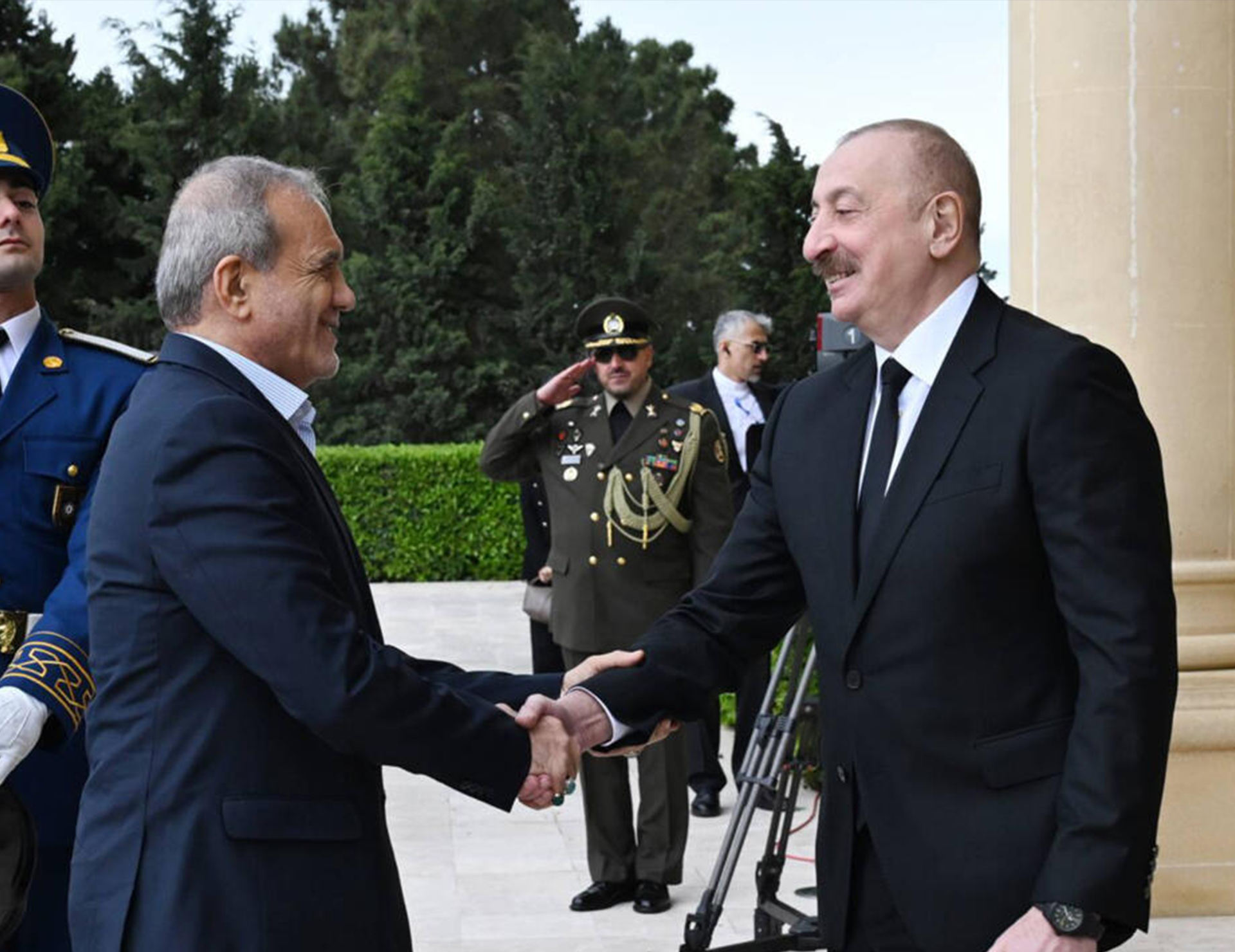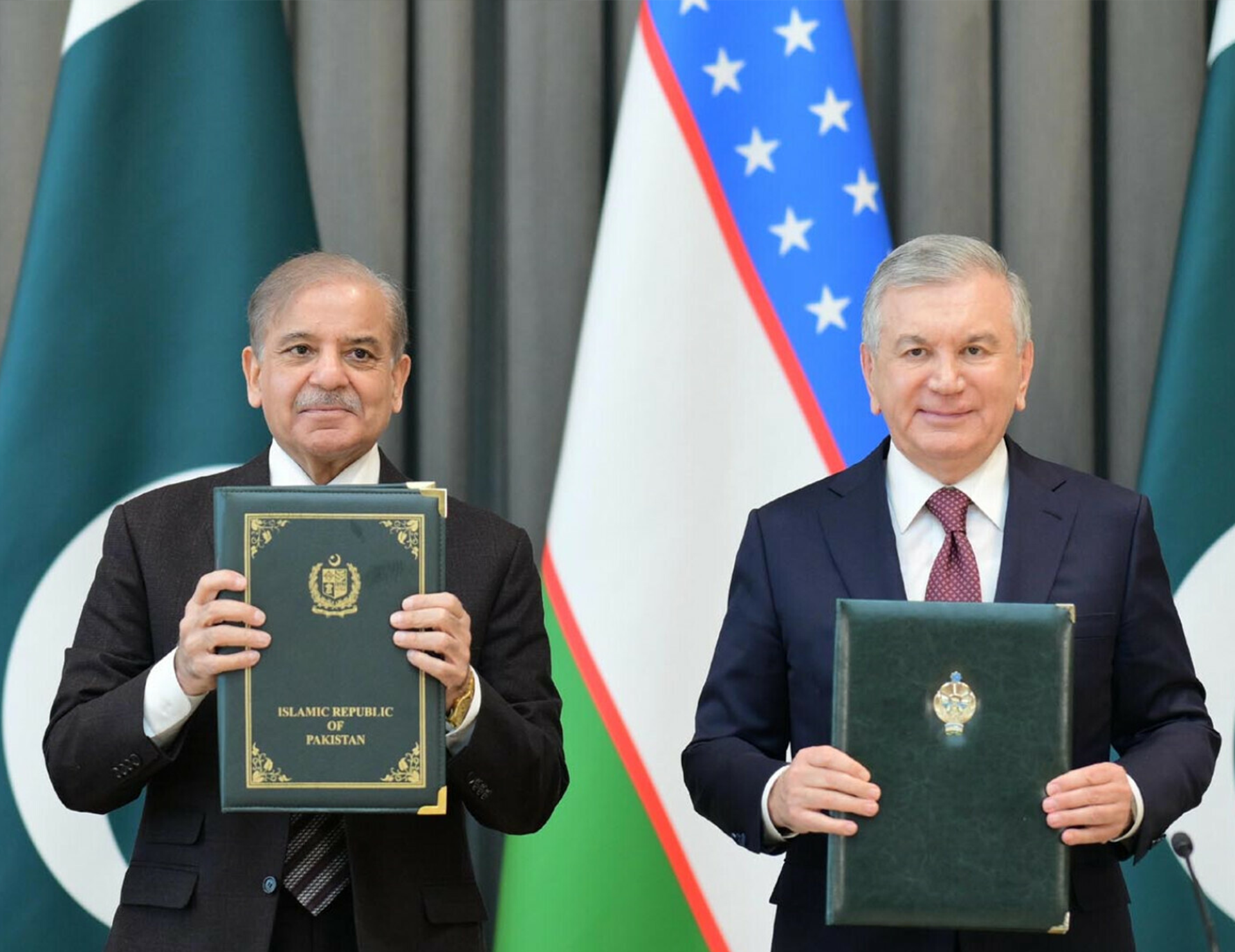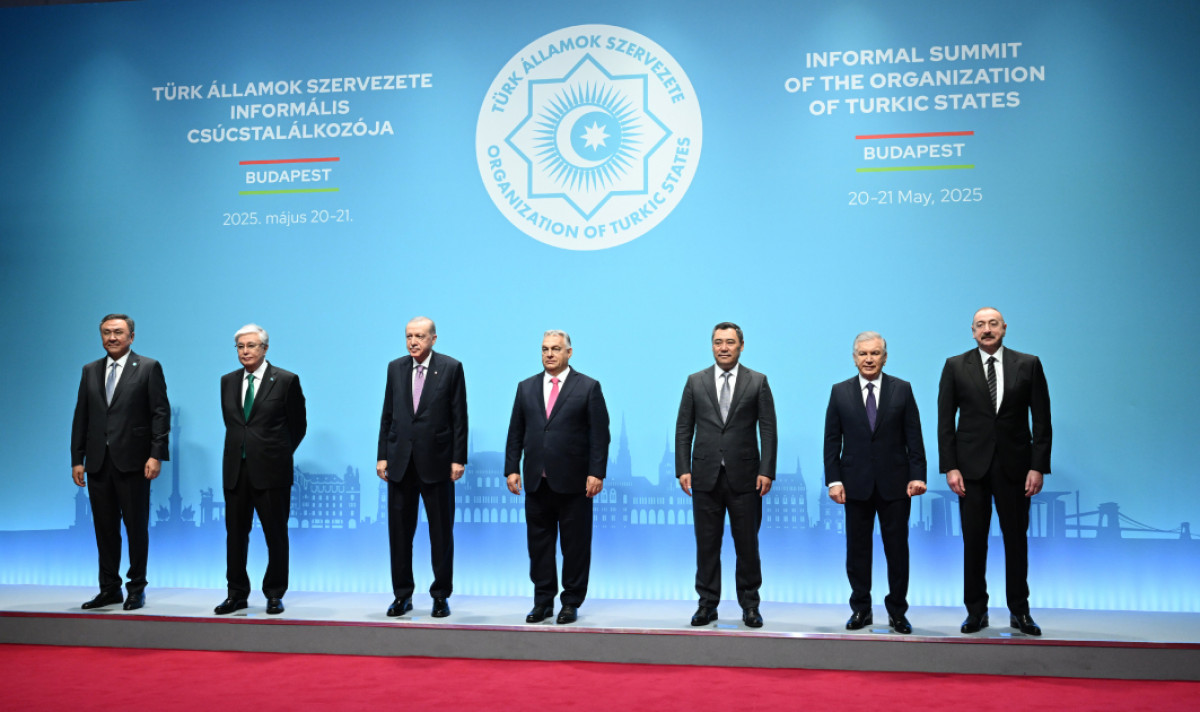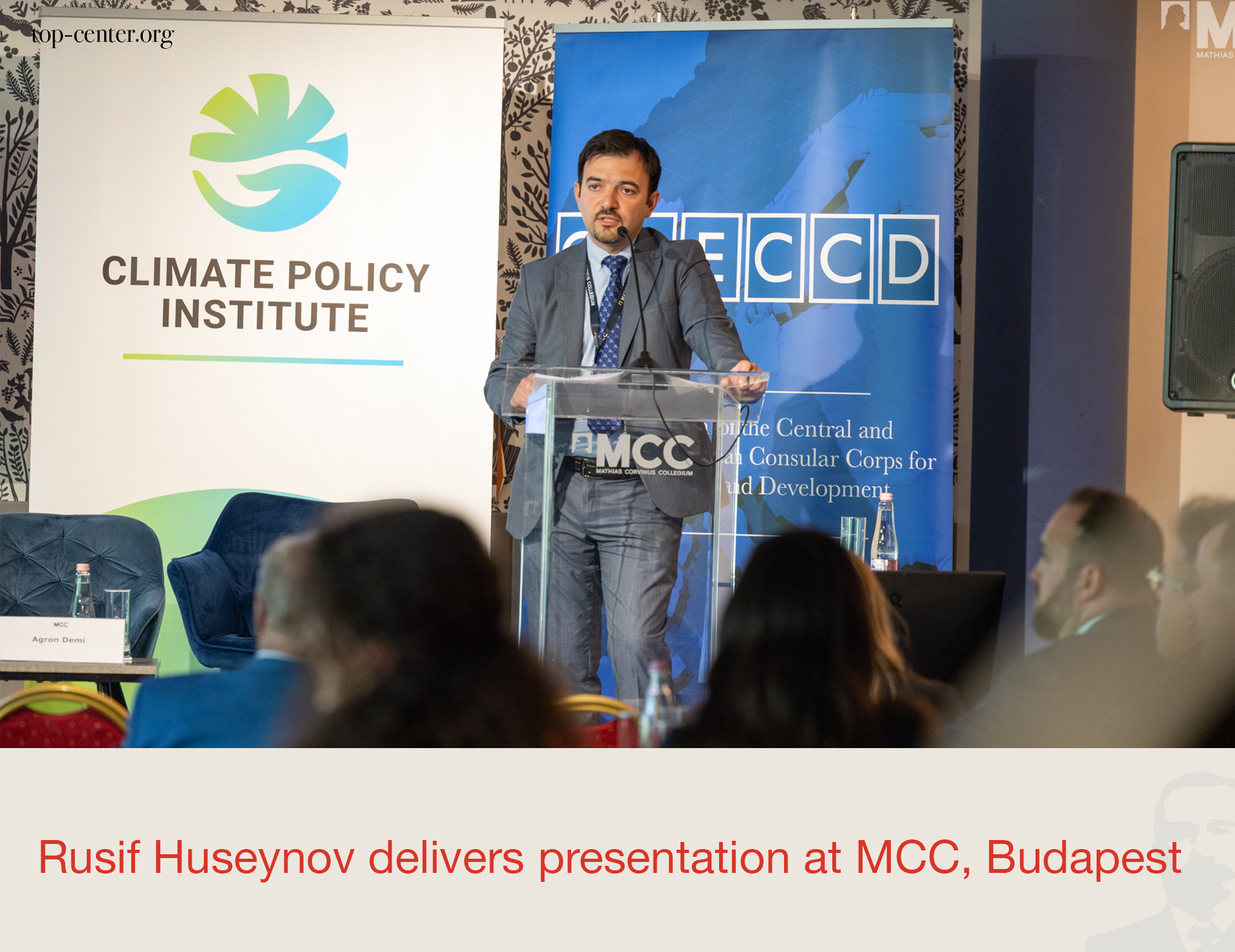On 18-19 August, Russian President Putin came to Azerbaijan on a state visit, the first time ever in the history of Azerbaijani-Russian relations. This time, it was all the more unexpected given the hasty planning of the trip and lack of information about its agenda and purposes. A plenty of interpretations have been put forward to explain why Putin, who since the outbreak of COVID-19 and especially after the start of Russia’s invasion into Ukraine has not been travelling much, decided to visit Baku with such a pomp.
The manner in which the trip was organised, attests, firstly, to the fact that it was the Russian side who initiated it and secondly, taking into account the representativeness of the delegation that travelled to Baku, that it pursued some tangible goals to achieve. It must be emphasized that the last few months in the South Caucasus have been geopolitically very turbulent and the negotiation process between Azerbaijan and Armenia is approaching a bifurcation point: at some moment, its development is bound either to turn towards a definite breakthrough or, alternatively, to spiral down into a more confrontational state.
Recently, Elchin Amirbeyov, representative of the president of the Republic of Azerbaijan who plays one of the leading roles in the negotiation process, visited Hudson Institute in Washington, where he stated that the critical issue on the agenda now is Armenia’s readiness to hold a constitutional referendum to exclude territorial claims on Azerbaijan, a condition Baku considers a sine qua non for a comprehensive peace agreement but which this far has been rejected in Yerevan. However, there are rumours that Armenia may accept this condition in the nearest future, and of course it could be a game changer for the peace process. This development may come as a negative surprise for the Russian government: since 2020, it has been trying, in intricate ways, to sustain hostilities between Baku and Yerevan in order to extend its influence over the region. There are reports that the stubborn refusal of the so-called separatist “government” in Khankendi to negotiate with Baku was orchestrated from Moscow which hoped to bring Armenia back into her orbit on the condition of keeping Azerbaijan from conducting an operation. Pashinyan’s refusal to do so was a rather bitter pill for the Kremlin, as well as the fact that Azerbaijani operation turned out to be swift and precise and didn’t entail any sanctions against Baku.
Moreover, a week after Amirbeyov’s visit the parties announced their agreement on decoupling the issue of opening communications (including the Zangezur road) from signing a peace treaty. This change has raised the chances for reaching an agreement soon, but for Moscow it is very important for yet another reason: according to the Trilateral statement of 09.11.2020, Russian Security Service was supposed to guard this strip of land connecting mainland Azerbaijan with its Nakhchivan enclave, once a road is opened. This condition is widely believed to have been imposed by the Kremlin, while Baku and Yerevan did not seem very enthusiastic about complying with it. Hence, the latest move can be interpreted in Moscow as a decisive attempt to exclude Russia from the long-term peace framework. Most probably, Putin was primarily concerned with the contours of a potential agreement with Armenia, trying to ensure he will have his say. At the meeting, he was actively offering Russian platform for the negotiation process, while a statement made by Russian MFA Lavrov accused Yerevan of “sabotaging the opening of regional communications”, indicating strong irritation Moscow feels towards its long-term regional satellite.
The second most important issue for Moscow regarding Azerbaijan is the countries’ economic and infrastructural cooperation. Recently, Russia has scaled up its efforts at completing the western link of the North-South corridor envisaged to connect it with Iran and India, thus providing a much better access to Asian markets. The considerable détente between Baku and Tehran and Azerbaijan’s growing interest in cooperating with Asian countries, including an intention to join BRICS, have probably pushed Russia to be more pro-active, especially given that the major obstacle for this route to be completed is the lack of the Rasht-Astara railway between Iran and Azerbaijan whose construction has been delayed for a few years already. President Aliyev at the press conference stated that Baku shared $120 million from the state budget this year for the works aimed at completing the renovation of the Azerbaijani railway segment. As Russia and Iran complete their preparations for signing a comprehensive strategic partnership agreement, while the tensions between Tehran and the West seem to be at an all-time high, Moscow feels it is now a momentum to complete construction.
Russia and Azerbaijan are also negotiating on a de-facto swap deal that would facilitate transit of Azerbaijani gas through Russia to Ukraine and further on to Europe. This scheme was proposed as an opportunity for Kyiv to escape direct transactions with Moscow after the current contract expires at the end of 2024, and is actively endorsed in Brussels in order not to risk an energy crisis in some of the Central European countries most dependent on Russian gas. At the same time, SOCAR and Gazprom are concluding a new agreement on research and technology cooperation, which could be very important for the sanction-laden Russian energy giant. In general, there were clear hopes on the Russian side to bring Baku closer to the Kremlin’s orbit, instigating it to take a greater participation in Moscow-centered projects; Azerbaijan up to now has invariably preferred to keep polite distance. Russia wants Baku to join sanction evasion schemes which it has been consistently avoiding, unlike such countries as Kazakhstan, Kyrgyzstan or Armenia. However, the list of documents signed during the visit looks quite trivial, as they are limited to intergovernmental sectoral cooperation on very narrow issues and an agreement between the two countries’ investment agencies. Aliyev’s statement that “Azerbaijan is fully satisfied with the existing level of cooperation with Russia” can be interpreted in a way that it isn’t interested in any further rapprochement. It is reported that Russian side remained dissatisfied with the practical outcomes of the visit.
Of course, some purely informal matters must have been discussed as well. Russia’s relations with Türkiye have recently been on a downward slope: Putin’s once-planned visit to Ankara is indefinitely delayed amid the rumours that the two countries have more and more frictions on a range of issues. Russian MFA has even criticized Turkish government for “taking part in destructive Western policies in Ukraine”. Some experts assume that Putin might have asked Aliyev, who has excellent relations with both leaders, to help alleviate controversies between the parties. Moreover, Azerbaijan is often viewed as one of the few good options for a role of mediator between Moscow and Kyiv: unlike Türkiye, it’s not a NATO member (which is already a disturbing factor for Russia), while compared to the Gulf states or India, it is much easier for Baku to communicate with Russian and Ukrainian leadership due to the shared past and good personal relationships Aliyev has with both Putin and Zelensky. As negotiation formats tried this far haven’t justified themselves yet, time may be ripe for a new mediator to enter.
The other motives behind Putin’s visit may include discussing Baku’s stance in the Middle Eastern standoff between Iran and Israel, and the Russian leader’s willingness to show that he is still a desired guest in many parts of the world, despite the sanction regime and the arrest warrant by the International Criminal Court that effectively barred Putin entry into many countries of the world. Russia has been going to great lengths to demonstrate that it’s not a pariah state and the Western attempts have failed, so a pompous visit to the relatively small Azerbaijan may have certain therapeutic effect for the Kremlin.

